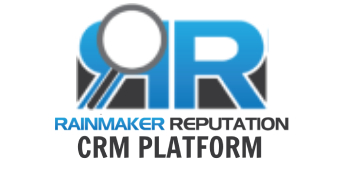Parents and educators are often well-acquainted with the numerous challenges encountered by children diagnosed with ADHD. These challenges can include difficulties in maintaining focus, completing homework, and managing behavioral issues. While ADHD is a well-documented and studied condition, it’s vital to recognize that other underlying issues, such as vision problems, may also play a significant role in these struggles. By thoroughly understanding the comprehensive range of a child’s difficulties, parents and educators can implement more targeted and effective interventions and support systems. This holistic approach empowers children to excel academically and socially, thereby significantly enhancing their overall quality of life.
Is Your Child’s Learning Experience Being Hindered by Vision Problems?
Research indicates that numerous children with ADHD frequently encounter various visual challenges that can complicate their learning processes. These visual issues, while sometimes subtle and not immediately evident, can drastically hinder a child’s capacity to engage fully in classroom activities and learn effectively. Therefore, addressing these visual difficulties becomes critical for creating an optimal learning environment that supports educational success.

Understanding the Vital Connection Between ADHD and Visual Processing Difficulties
It may surprise many to learn that a significant number of children diagnosed with ADHD also struggle with visual challenges that often go undetected during standard evaluations. Conversely, some children displaying symptoms akin to ADHD may actually be dealing with unresolved visual impairments. In both cases, these children typically find it exceedingly difficult to maintain attention and focus due to deficits in their visual processing capabilities. Recognizing and addressing these visual challenges is crucial for formulating effective educational strategies, interventions, and support systems that cater to each child’s unique needs.
A prevalent visual issue commonly linked to ADHD, is Convergence Insufficiency (CI). This condition disrupts binocular vision, which is essential for both eyes to function in harmony. When this coordination fails, it can severely hinder a child’s academic performance and overall learning experience. Children suffering from CI may exhibit a variety of symptoms, including double vision, eye strain, and blurred vision, all of which can significantly impede their ability to concentrate on tasks and absorb information effectively.
Extensive studies have established a strong correlation between ADHD and convergence insufficiency. A landmark study published in Optometry and Vision Science in 2009 revealed that children diagnosed with ADHD or displaying similar behavioral patterns showed a threefold higher prevalence of convergence insufficiency compared to a control group. This alarming statistic highlights the importance of evaluating visual health in children with ADHD to ensure they receive the necessary support and interventions.
Furthermore, the symptoms of ADHD can complicate a child’s ability to track moving objects due to erratic, involuntary eye movements. A significant study conducted in 2014 by researchers at Tel Aviv University, The University of Haifa, and Sheba Medical Center found a direct link between ADHD and difficulties in controlling eye movements while anticipating visual stimuli. This discovery underscores the complex relationship between visual processing challenges and attention deficits in children.

Identifying Visual Impairments in Children with ADHD to Facilitate Academic Achievement
It is essential to understand that a child with ADHD may still struggle with visual skills, even if they have successfully passed standard school-based visual acuity tests. Fundamental skills such as eye teaming, focusing, and tracking are crucial for efficient reading and learning, profoundly affecting a child’s academic performance. If these vital visual skills are compromised, children may face additional obstacles in their educational journey, leading to a cycle of frustration and underachievement that can persist over time.
To ascertain whether your child’s vision issues are connected to their ADHD diagnosis, scheduling a comprehensive functional eye exam with a qualified Behavioural Optometrist is highly advisable. At Eyes by Design, our skilled Behavioural Optometrist performs thorough evaluations of your child’s vision, actively seeking indicators of convergence insufficiency, challenges with eye teaming, oculomotor dysfunction, focusing difficulties, amblyopia (lazy eye), and other potential visual impairments. This meticulous approach ensures the identification of the root causes of any visual challenges, facilitating appropriate interventions tailored to meet your child’s specific needs.
Empowering Children Through Vision Therapy: Enhancing Visual Skills
Vision therapy presents a powerful avenue for children struggling with visual difficulties. This therapeutic approach may incorporate the use of specialized training lenses and/or a customized regimen of eye exercises aimed at enhancing visual skills. According to the National Institutes of Health, approximately 75% of young patients diagnosed with convergence insufficiency reported either a complete return to normal vision or a substantial reduction in symptoms following completion of a vision therapy program. This impressive statistic underscores the effectiveness of such interventions in bolstering children’s visual health and academic performance, ultimately transforming their learning experiences.
We invite you to contact us for a Behavioural Eye Assessment to determine if vision therapy could be a beneficial solution for your child. Our practice is dedicated to serving patients throughout the Central Coast and surrounding communities, ensuring that every child receives the necessary support and care to thrive and succeed academically.

Expert Answers to Common Queries by Dr. Nick Altuneg
Q: How can I identify if my child requires a vision assessment?
A: Children often do not articulate their vision issues, as they may not recognize that their visual perception differs from that of their peers. As a parent or guardian, you have a unique opportunity to observe your child’s behaviors and academic performance closely. If you notice that your child is struggling to reach their full potential or is exerting significantly more effort than their peers to achieve similar results, it is vital to trust your instincts. Arranging a Behavioural Eye Examination could be one of the most impactful steps you can take for your child’s future success in both academic and personal realms.
Q: What specific signs should I be vigilant about in my child?
A: Based on my extensive experience, if you can answer yes to one or both of the following questions, there’s a strong likelihood that your child may be experiencing a visually related learning issue:
- Is your child not reaching their potential in relation to their abilities?
- Is your child performing significantly better in numeracy compared to literacy?
The following indicators are commonly observed in children with visual or vision information processing disorders:
- Using a finger or another guide to keep their place while reading.
- Reversing letters, numbers, or words while reading or writing.
- Holding reading materials excessively close to their face.
- Experiencing the sensation of words moving across the page.
- Confusing visually similar words during reading tasks.
- Having trouble maintaining focus on the reading material.
- Experiencing rapid fatigue during near-vision tasks.
- Struggling to recall words during conversations or writing.
- Exhibiting a decline in comprehension skills over time.
Q: Is it the ADHD that impacts vision, or vice versa?
A: When children face academic struggles relative to their potential, they may be contending with visually related learning issues, specific reading challenges, or a combination of both. A specific reading problem often refers to dyslexia and can include challenges associated with ADHD. On the other hand, visually related learning problems are typically easier for a Behavioural Optometrist to diagnose and treat, often leading to prompt positive outcomes.
Conversely, specific reading difficulties can stem from a variety of complex factors, including genetic predispositions, developmental delays, retained reflexes, poor coordination of motor, auditory, and visual skills, as well as neurological or chemical imbalances, gut health issues, allergies, or psychological conditions. Given this multifaceted nature, it is prudent to prioritize a detailed vision assessment first, as it can save considerable time, stress, and financial resources in the long run.
This article is designed to enhance your understanding of general eye health topics.
It is not intended to replace professional advice, diagnosis, or treatment.
Please consult your healthcare professional before making any changes to your health regimen.
Dr Nicholas Altuneg
For over twenty years, I have been dedicated to helping individuals of all ages improve their lives through enhanced vision. At Eyes by Design, vision encompasses far more than merely the ability to see clearly or read fine print from afar; it influences your perceptions and shapes your reactions in every moment of your day.
Read more about Dr Nick
The Article: Get Your Child’s Eyes Checked for ADHD Symptoms first appeared on https://writebuff.com
The Article Eye Checkups for ADHD Symptoms in Children Was Found On https://limitsofstrategy.com


2 Responses
Your insights on the intersection of ADHD and vision problems highlight a crucial aspect that is often overlooked in discussions about children’s learning difficulties. As a parent and educator, I’ve encountered firsthand how multifaceted these challenges can be. It’s not uncommon for children struggling with attention and focus to also have undiagnosed vision issues that exacerbate their difficulties.
It’s interesting to see the connection between ADHD and visual challenges, as these issues often get overlooked in discussions about children’s learning. My child has ADHD, and I was surprised to find that he was also struggling with eye tracking and visual processing. After we got him assessed and started some vision therapy alongside the other interventions, it felt like a light bulb went off for him.